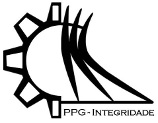CONTROLADOR LQG APLICADO A UM SISTEMA DE DIREÇÃO ELÉTRICA
DOI:
https://doi.org/10.26512/ripe.v2i31.21332Palavras-chave:
Direção Elétrica. LQG. LQR. Filtro de Kalman.Resumo
A utilização de sistemas eletroeletrônicos (E/E) nos automóveis tem aumentado nos últimos anos. Isto se deve principalmente aos diversos benefícios oferecidos por estes sistemas como: redução no consumo de combustível, aumento de performance, conforto e segurança. Um dos sistemas bastante utilizado atualmente é o Sistema de Direção Elétrica Assistida (EPAS). O EPAS pode ser considerado como evolução dos mecanismos de direção tradicionais, e tem como objetivo reduzir o esforço empregado pelos motoristas durante as manobras de esterçamento das rodas. Dentre os diversos componentes que fazem parte do EPAS, destaca-se a Unidade de Controle Eletrônico (ECU) e também a estratégia de controle utilizada. Diante deste cenário, este trabalho tem por objetivo investigar a utilização da estratégia de controle Linear Quadrático Gaussiano (LQG), para o controle de um EPAS. Os resultados das simulações realizadas demonstraram que esta estratégia pode ser utilizada no projeto do controlador, uma vez que apresentou estabilidade e robustez ainda que sob presença de perturbações externas.
Referências
Alamir, M. 2013. A Pragmatic Story of Model Predictive Control: Self-Contained Algorithms and Case-Studies. CNRS-University of Grenoble.
Badawy, A., Zuraski, J., Bolourchi, F., & Chandy, A. 1999. Modeling and analysis of an electric power steering system (No. 1999-01-0399). SAE Technical Paper.
Blake, D., & Leader, A. 2005. Embedded systems and vehicle innovation. Automotive Engineering International, 42.
Chabaan, R. C., & Wang, L. Y. 2001. Control of electrical power assist systems: H1 design, torque estimation and structural stability. JSAE review, pp. 435-444.
Chitu, C., Lackner, J., Horn, M., Waser, H., & Kohlböck, M. 2011. A robust and optimal lqr controller design for electric power steering system. In Proceedings of the Joint INDS’11 & ISTET’11 pp. 1-5. IEEE.
Chitu, C., Lackner, J., Horn, M., Srikanth Pullagura, P.,Waser, H., & Kohlböck, M. 2013. Controller design for an electric power steering system based on LQR techniques. COMPEL-The international journal for computation and mathematics in electrical and electronic engineering, pp. 763-775.
Coulon D. Whatever the Future of the Automotive Industry, Electronics is the Key, 2014. Disponível em:< http://www.ttiinc.com/object/me-coulon-20140909.html />. Acesso em: 07 de julho de 2016.
Day, J. TRW launches EPS column drive in China, 2013. Disponível em: < http://johndayautomotivelectronics.com/trw-launches-eps-column-drive-in-china />. Acesso em: 24 de julho de 2016.
Dong, L., Kandula, P., Gao, Z., & Wang, D. 2010. Active disturbance rejection control for an electric power assist steering system. International Journal of Intelligent Control and System, pp. 18-24.
Kannan, M. M. 2007. Digital Control, Ed Wiley, pp. 508-511.
Kim, J. H., & Song, J. B., 2002. Control logic for an electric power steering system using assist motor. Mechatronics, pp. 447-459.
Levine, W. S. (Ed.). 1996. The control handbook. CRC press.
Marouf, A., Djemai, M., Sentouh, C., & Pudlo, P. 2012. A new control strategy of an electricpower assisted steering system. IEEE Transactions on Vehicular Technology, pp. 3574-3589.
Ogata K. 2010. Modern Control Engineering. 5 Edição, Pearson, pp. 793.
O’Reilly, J. 1987. Multivariable control for industrial applications, IET, pp. 166.
Parmar, M., & Hung, J. Y. 2004. A sensorless optimal control system for an automotive electric power assist steering system. IEEE Transactions on Industrial Electronics, pp. 290-298.
Parvathy, R., & Daniel, A. E. 2013. A survey on active disturbance rejection control. In Automation, Computing, Communication, Control and Compressed Sensing, 2013 International Multi-Conference on, pp. 330-335. IEEE.
Ren, W., Chen, H., & Song, J. 2008. Model-based development for an electric power steering system. Proceedings of the Institution of Mechanical Engineers, Part C: Journal of Mechanical Engineering Science, pp. 1265-1269.
Song, J., Boo, K., Kim, H. S., Lee, J., & Hong, S. 2004. Model development and control methodology of a new electric power steering system. Proceedings of the Institution of Mechanical Engineers, Part D: Journal of Automobile Engineering, pp. 967-975.
Stella, G. N. D. 2015. Aplicação do Método de Desenvolvimento Baseado em modelos para uma Função de Software Automotivo. Dissertação de Mestrado. Programa de Pós-Graduação em Engenharia Elétrica, Universidade Tecnológica Federal do Paraná. Ponta Grossa. Paraná. Brasil.
Sugitani, N., Fujuwara, Y., Uchida, K., & Fujita, M. 1997. Electric power steering with H1 control designed to obtain road information. In American Control Conference, 1997. Proceedings of the 1997 (Vol. 5, pp. 2935-2939). IEEE.
Yang, X., & Marjanovic, O. 2011. LQG control with extended Kalman filter for Power Systems with unknown time-delays. IFAC Proceedings Volumes, pp. 3708-3713.
Zang, H., & Liu, M. 2007. Fuzzy neural network PID control for electric power steering system. In 2007 IEEE International Conference on Automation and Logistics, pp. 643-648.
Zhao, W. Z., Li, Y. J., Wang, C. Y., Zhao, T., & Gu, X. Y. 2013. H1 control of novel active steering integrated with electric power steering function. Journal of Central South University, pp. 2151-2157.
Downloads
Publicado
Edição
Seção
Licença
Autores que publicam nesta revista concordam com os seguintes termos:
Autores mantém os direitos autorais e concedem à revista o direito de primeira publicação, sendo o trabalho simultaneamente licenciado sob a Creative Commons Attribution License o que permite o compartilhamento do trabalho com reconhecimento da autoria do trabalho e publicação inicial nesta revista.
Autores têm autorização para assumir contratos adicionais separadamente, para distribuição não-exclusiva da versão do trabalho publicada nesta revista (ex: publicar em repositório institucional ou como capítulo de livro), com reconhecimento de autoria e publicação inicial nesta revista.
Autores têm permissão e são estimulados a publicar e distribuir seu trabalho online (ex: em repositórios institucionais ou na sua página pessoal) a qualquer ponto antes ou durante o processo editorial, já que isso pode gerar alterações produtivas, bem como aumentar o impacto e a citação do trabalho publicado.









